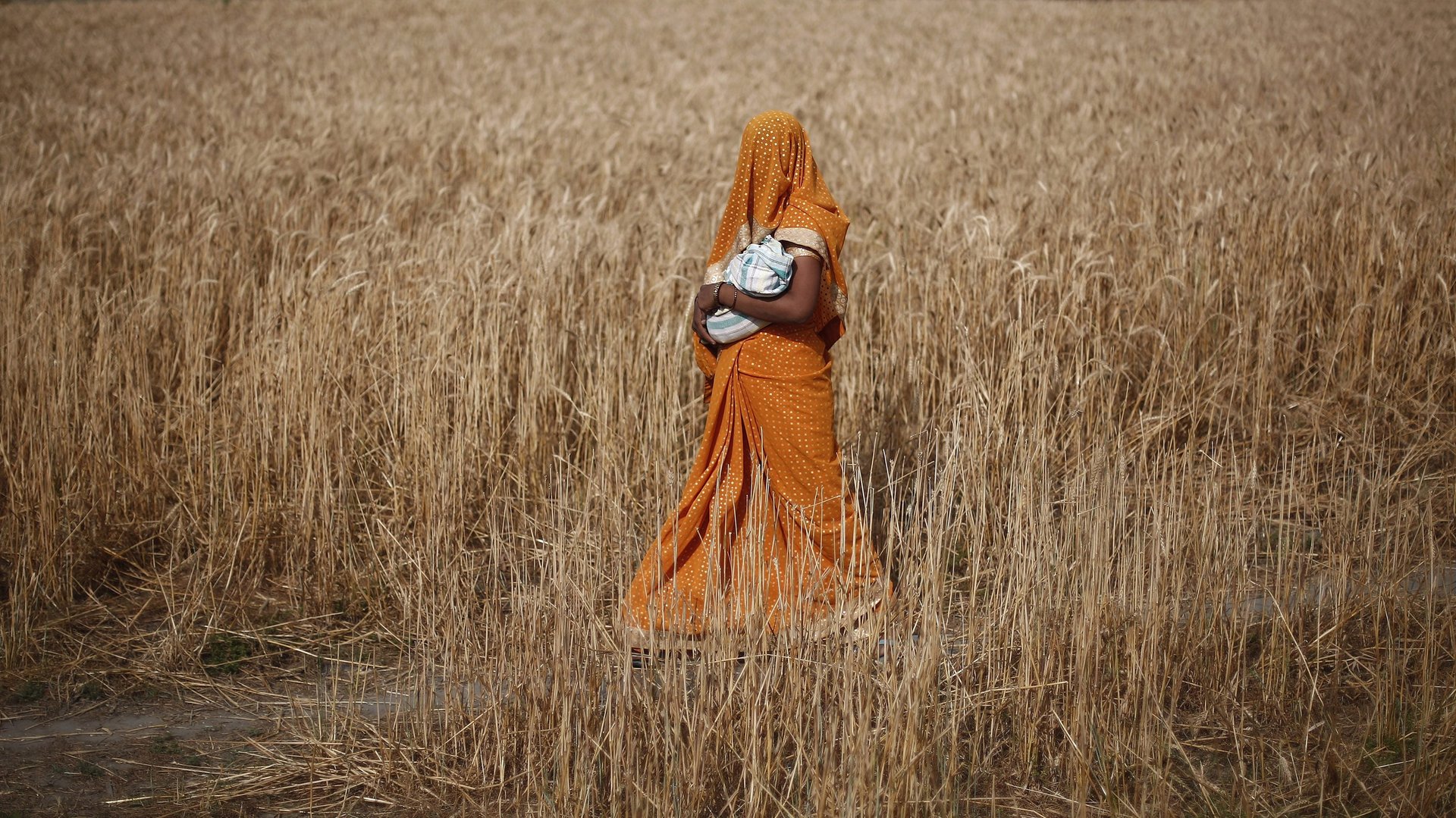Poorly nourished pregnant women are also badly overworked in rural India
India has one of the highest paid maternity benefits for working women in the world. But that law means nothing to most women in the country.


India has one of the highest paid maternity benefits for working women in the world. But that law means nothing to most women in the country.
Just 49% of those eligible for the central government maternity benefits scheme received any payment, according to the Jachcha Bachcha Survey conducted by economists Reetika Khera and Jean Drèze. A large majority of women working in the unorganised sector, and those who run entire households while being pregnant, are entitled to just Rs5,000 ($69.49) for their first-born child under the Pradhan Mantri Matru Vandana Yojana (PMMVY).
A low coverage of this scheme meant that it did little to improve the lives of pregnant and nursing women.
The survey, which took into account the six northern Indian states of Uttar Pradesh, Madhya Pradesh, Chhattisgarh, Odisha, Jharkhand, and Himachal Pradesh, found that women in these states face extreme hardship during a time when their bodies need the most rest and nutrition.
“We were shocked to find how little attention was paid, in the sample households, to the special needs of pregnancy—good food, extra rest and health care. Often, family members or even women themselves had little awareness of these special needs,” wrote Khera and Drèze.
The average weight that women gained during pregnancy was also woefully low. And this was only for the women whose weights were properly monitored. “For instance, 48% of pregnant women and 39% of nursing women in UP had no idea whether or not they had gained weight during pregnancy,” Khera and Drèze noted. This was particularly significant given that the PMMVY scheme was primarily meant to help women tide over financial difficulties of finding the right kind of food and medical aid.

States differ
The other contention that the survey made was that the PMMVY replaced the entitlements pregnant women received under the National Food Security Act. Under the previous provision, women were to receive universal coverage of Rs6,000 for all births. The PMMVY restricts it to the first-born.
In states like Tamil Nadu and Odisha, maternity benefits are relatively superior, both in terms of what they offer, and their coverage. The southern Indian state of Tamil Nadu, which has had a maternity entitlement programme in place since 1987, leads by a huge margin.